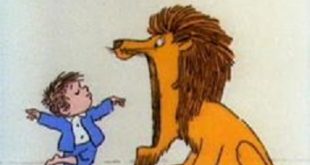Noun: ardor
Pronunciation: (aar-dur)
Ardor meaning:
- A feeling of strong eagerness usually in favor of a person or cause

- Intense feeling of love
Synonyms: ardour

- Feelings of great warmth and intensity
Synonyms: ardour, fervor, fervour, fervency, fire, fervidness
Derived forms: ardors
Quotations: Emma Goldman – The idealists and visionaries, foolish enough to throw caution to the winds and express their ardor and faith in some supreme deed, have advanced mankind and have enriched the world.
Wallace Stevens – It is the unknown that excites the ardor of scholars, who, in the known alone, would shrivel up with boredom.
Henry Beston – The quality of life, which in the ardor of spring was personal and sexual, becomes social in midsummer.
Propertius – Among absent lovers, ardor always fares better.
Charles Baudelaire – It is unfortunately very true that, without leisure and money, love can be no more than an orgy of the common man. Instead of being a sudden impulse full of ardor and reverie, it becomes a distastefully utilitarian affair.
Ella Wheeler Wilcox – If you work with zeal and ardor till the night, you can only make the wasted moments right.
Edward G. Bulwer-Lytton – How little praise warms out of a man the good that is in him, as the sneer of contempt which he feels is unjust chill the ardor to excel.
Emily Brontë – If he loved with all the powers of his puny being, he couldn’t love as much in eighty years as I could in a day.
Abigail Adams – Learning is not attained by chance, it must be sought for with ardor and attended to with diligence.
Simone de Beauvoir – When she does not find love, she may find poetry. Because she does not act, she observes, she feels, she records; a color, a smile awakens profound echoes within her; her destiny is outside her, scattered in cities already built, on the faces of men already marked by life, she makes contact, she relishes with passion and yet in a manner more detached, more free, than that of a young man. Being poorly integrated in the universe of humanity and hardly able to adapt herself therein, she, like the child, is able to see it objectively; instead of being interested solely in her grasp on things, she looks for their significance; she catches their special outlines, their unexpected metamorphoses. She rarely feels a bold creativeness, and usually she lacks the technique of self-expression; but in her conversation, her letters, her literary essays, her sketches, she manifests an original sensitivity. The young girl throws herself into things with ardor, because she is not yet deprived of her transcendence; and the fact that she accomplishes nothing, that she is nothing, will make her impulses only the more passionate. Empty and unlimited, she seeks from within her nothingness to attain all.
Sample sentences:
- I find I am much prouder of the victory I obtain over myself, when, in the very ardor of dispute, I make myself submit to my adversary’s force of reason, than I am pleased with the victory I obtain over him through his weakness.
- I have always been interested in this man. My father had a set of Tom Paine’s books on the shelf at home. I must have opened the covers about the time I was 13. And I can still remember the flash of enlightenment which shone from his pages. It was a revelation, indeed, to encounter his views on political and religious matters, so different from the views of many people around us. Of course I did not understand him very well, but his sincerity and ardor made an impression upon me that nothing has ever served to lessen. I have heard it said that Paine borrowed from Montesquieu and Rousseau. Maybe he had read them both and learned something from each. I do not know. But I doubt that Paine ever borrowed a line from any man. Many a person who could not comprehend Rousseau, and would be puzzled by Montesquieu, could understand Paine as an open book. He wrote with clarity, a sharpness of outline and exactness of speech that even a schoolboy should be able to grasp. There is nothing false, little that is subtle, and an impressive lack of the negative in Paine. He literally cried to his reader for a comprehending hour, and then filled that hour with such sagacious reasoning as we find surpassed nowhere else in American letters – seldom in any school of writing. Paine would have been the last to look upon himself as a man of letters. Liberty was the dear companion of his heart; truth in all things his object we, perhaps, remember him best for his declaration: The world is my country; to do good my religion. Again we see the spontaneous genius at work in ‘The Rights of Man’, and that genius busy at his favorite task – liberty. Written hurriedly and in the heat of controversy, ‘The Rights of Man’ yet compares favorably with classical models, and in some places rises to vaulting heights. Its appearance outmatched events attending Burke’s effort in his ‘Reflections’. Instantly the English public caught hold of this new contribution. It was more than a defense of liberty; it was a world declaration of what Paine had declared before in the Colonies. His reasoning was so cogent, his command of the subject so broad, that his legion of enemies found it hard to answer him. Tom Paine is quite right, said Pitt, the Prime Minister, but if I were to encourage his views we should have a bloody revolution. Here we see the progressive quality of Paine’s genius at its best. ‘The Rights of Man’ amplified and reasserted what already had been said in ‘Common Sense’, with now a greater force and the power of a maturing mind. Just when Paine was at the height of his renown, an indictment for treason confronted him. About the same time he was elected a member of the Revolutionary Assembly and escaped to France. So little did he know of the French tongue that addresses to his constituents had to be translated by an interpreter? But he sat in the assembly. Shrinking from the guillotine, he encountered Robespierre’s enmity, and presently found himself in prison, facing that dread instrument. But his imprisonment was fertile. Already he had written the first part of ‘The Age of Reason’ and now turned his time to the latter part. Presently his second escape cheated Robespierre of vengeance, and in the course of events ‘The Age of Reason’ appeared. Instantly it became a source of contention which still endures. Paine returned to the United States a little broken, and went to live at his home in New Rochelle – a public gift. Many of his old companions in the struggle for liberty avoided him, and he was publicly condemned by the unthinking.
- She was one of those people who was born for the greatness of a single love, for exaggerated hatred, for apocalyptic vengeance, and for the most sublime forms of heroism but she was unable to shape her fate to the dimensions of her amorous vocation, so it was lived out as something flat and gray trapped between her mother’s sickroom walls, wretched tenements, and the tortured confessions with which this large, opulent, hot-blooded woman made for maternity, abundance, action, and ardor- was consuming herself.
- Lasting love is something a person has to decide to experience. Lifelong monogamous devotion is just not natural—not for women even, and emphatically not for men. It requires what, for lack of a better term, we can call an act of will. This isn’t to say that a young man can’t hope to be seized by love. But whether the sheer fury of a man’s feelings accurately gauges their likely endurance is another question. The ardor will surely fade, sooner or later, and the marriage will then live or die on respect, practical compatibility, simple affection, and these days, especially determination. With the help of these things, something worthy of the label ‘love’ can last until death. But it will be a different kind of love from the kind that began the marriage. Will it be a richer love, a deeper love, a more spiritual love? Opinions vary. But it’s certainly a more impressive love.
- It is an uneasy lot at best, to be what we call highly taught and yet not to enjoy: to be present at this great spectacle of life and never to be liberated from a small hungry shivering self—never to be fully possessed by the glory we behold, never to have our consciousness rapturously transformed into the vividness of a thought, the ardor of a passion, the energy of an action, but always to be scholarly and uninspired, ambitious and timid, scrupulous and dim-sighted.
- If your concern is that I may be overcome with manly ardor and ravish you in a moment of weakness. I may if you ask nicely.
- Friendship is an obstetric art; it draws out our richest and deepest resources; it unfolds the wings of our dreams and hidden indeterminate thoughts; it serves as a check on our judgements, tries out our new ideas, keeps up our ardor, and inflames our enthusiasm.
- Children are remarkable for their intelligence and ardor, for their curiosity, their intolerance of shams, the clarity and ruthlessness of their vision.
- The Presidential election has given me less anxiety than I myself could have imagined. The next administration will be a troublesome one, to whomsoever it falls, and our John has been too much worn to contend much longer with conflicting factions. I call him our John, because, when you were at the Cul de sac at Paris, he appeared to me to be almost as much your boy as mine. As to the decision of your author, though I wish to see the book ‘Flourens’s Experiments on the functions of the nervous system in vertebrate animals’, I look upon it as a mere game at push-pin. Incision-knives will never discover the distinction between matter and spirit, or whether there is any or not. That there is an active principle of power in the universe is apparent; but in what substance that active principle resides, is past our investigation. The faculties of our understanding are not adequate to penetrate the universe. Let us do our duty, which is to do as we would be done by; and that, one would think, could not be difficult, if we honestly aim at it. Your university is a noble employment in your old age, and your ardor for its success does your honor; but I do not approve of your sending to Europe for tutors and professors. I do believe there are sufficient scholars in America, to fill your professorships and tutorships with more active ingenuity and independent minds than you can bring from Europe. The Europeans are all deeply tainted with prejudices, both ecclesiastical and temporal, which they can never get rid of. They are all infected with Episcopal and Presbyterian creeds, and confessions of faith. They all believe that great Principle which has produced this boundless universe, Newton’s universe and Herschel’s universe, came down to this little ball, to be spit upon by Jews. And until this awful blasphemy is got rid of, there never will be any liberal science in the world. I salute your fireside with best wishes and best affections for their health, wealth and prosperity.
- Of whom and of what can I say: “I know that”! This heart within me I can feel, and I judge that it exists. This world I can touch and I likewise judge that it exists. There ends all my knowledge, and the rest is construction. For if I try to seize this self of which I feel sure, if I try to define and to summarize it, it is nothing but water slipping through my fingers. I can sketch one by one all the aspects it is able to assume, all those likewise that have been attributed to it, this upbringing, this origin, this ardor or these silences, this nobility or this vileness. But aspects cannot be added up. This very heart which is mine will forever remain indefinable to me. Between the certainties I have of my existence and the content I try to give to that assurance the gap will never be filled.
- If you are in passionate love and want to celebrate your passion, read poetry. If your ardor has calmed and you want to understand your evolving relationship, read psychology. But if you have just ended a relationship and would like to believe you are better off without love, read philosophy.
- Many a night that summer she left Dr. Archie’s office with a desire to run and run about those quiet streets until she wore out her shoes, or wore out the streets themselves; when her chest ached and it seemed as if her heart were spreading all over the desert. When she went home, it was not to go to sleep. She used to drag her mattress beside her low window and lie awake for a long while, vibrating with excitement, as a machine vibrates from speed. Life rushed in upon her through that window or so it seemed. In reality, of course, life rushes from within, not from without. There is no work of art so big or so beautiful that it was not once all contained in some youthful body, like this one which lay on the floor in the moonlight, pulsing with ardor and anticipation. It was on such nights that Thea Kronborg learned the thing that old Dumas meant when he told the Romanticists that to make a drama he needed but one passion and four walls.
- His demanding tongue tasted so damn good, and his piercing bit deliciously against her lip from the aggressive way he pursued her over and over. His hands tugged and massaged at her hair and neck. He just surrounded her. The difference in their height made Caden lean down over her. The way he forced her head back commanded her to open up to him. With the metal handle of the door pressing into her back, she felt completely enveloped in him, in his ardor, his scent. The world dropped away. There was just Caden.
- The idealists and visionaries, foolish enough to throw caution to the winds and express their ardor and faith in some supreme deed, have advanced mankind and have enriched the world.
- It is the unknown that excites the ardor of scholars, who, in the known alone, would shrivel up with boredom.
- The indolence I love is not that of a lazy fellow who sits with his arms across in total inaction, and thinks no more than he acts, but that of a child which is incessantly in motion doing nothing, and that of a dotard who wanders from his subject. I love to amuse myself with trifles, by beginning a hundred things and never finishing one of them, by going or coming as I take either into my head, by changing my project at every instant, by following a fly through all its windings, in wishing to overturn a rock to see what is under it, by undertaking with ardor the work of ten years, and abandoning it without regret at the end of ten minutes; finally, in musing from morning until night without order or coherence, and in following in everything the caprice of a moment.
- To wait so long and want a man refined and strong is not at all uncommon. And yet to wait one hundred years without a tear, without a care makes for a very rare woman. So here our tale appears to show how marriage deferred brings joy unheard nothing lost after a century or so. But others love with more ardor and wed quickly out of passion. Whatever they do I won’t deplore nor shall I preach a lesson.
- There was a new kind of strength in the gravity of her face, and her colors still gave her that look of deep-seated health and ardor.
- There are hermit souls that live withdrawn in the place of their self-content; There are souls like stars, that dwell apart, in a fellow less firmament; There are pioneer souls that blaze their paths where highways never ran but let me live by the side of the road and be a friend to man. Let me live in a house by the side of the road, where the race of men go by the men who are good and the men who are bad, as good and as bad as I. I would not sit in the scorner’s seat, or hurl the cynic’s ban. Let me live in a house by the side of the road and be a friend to man. I see from my house by the side of the road, by the side of the highway of life, the men who press with the ardor of hope, the men who are faint with the strife. But I turn neither away from their smiles nor their tears, both parts of an infinite plan. Let me live in a house by the side of the road and be a friend to man. I know there are brook-gladdened meadows ahead and mountains of wearisome height; that the road passes on through the long afternoon and stretches away to the night. But still I rejoice when the travelers rejoice. And weep with the strangers that moan, nor live in my house by the side of the road like a man who dwells alone. Let me live in my house by the side of the road. It’s here the race of men go by. They are good, they are bad, they are weak, they are strong, wise, foolish.
- To have a full stomach, to daze lazily in the sunshine such things were remuneration in full for his ardors and toils, while his ardors and toils were in themselves self-remunerative. They were expressions of life, and life is always happy when it is expressing itself.
- Poets represent love as sculptors design beauty, as musicians create melody; that is to say, endowed with an exquisite nervous organization, they gather up with discerning ardor the purest elements of life, the most beautiful lines of matter, and the most harmonious voices of nature. There lived, it is said, at Athens a great number of beautiful girls; Praxiteles drew them all one after another; then from these diverse types of beauty, each one of which had its defects, he formed a single faultless beauty and created Venus. The man who first created a musical instrument, and who gave to harmony its rules and its laws, had for a long time listened to the murmuring of reeds and the singing of birds. Thus the poets, who understand life, after knowing much of love, more or less transitory, after feeling that sublime exaltation which real passion can for the moment inspire, eliminating from human nature all that degrades it, created the mysterious names which through the ages fly from lip to lip: Daphnis and Chloe, Hero and Leander, Pyramus and Thisbe. To try to find in real life such love as this, eternal and absolute, is but to seek on public squares a woman such as Venus, or to expect nightingales to sing the symphonies of Beethoven.
 Spinfold VisualDictionary-Evolutree- Technorip-Amazing Facts and much more.
Spinfold VisualDictionary-Evolutree- Technorip-Amazing Facts and much more.





